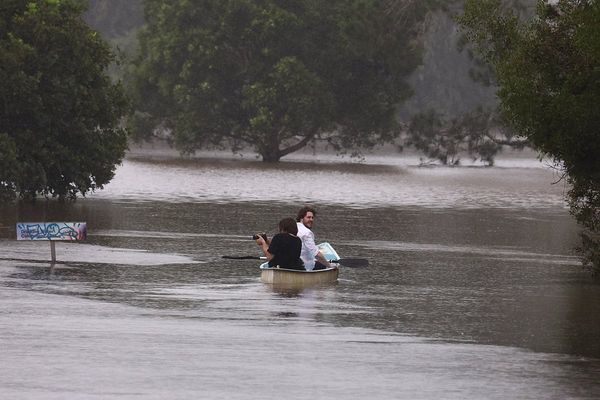
A police decision to give Covid fines to protesters at Black Lives Matter and transgender rights rallies in Sydney did not impose an unjustified burden on freedom of speech, a court has ruled.
Two protesters, Chad Stratton and Ruby Pandolfi, challenged Covid fines issued in 2020 for their attendance at separate protests, which were deemed to fall foul of the then restrictions on mass gatherings.
Stratton was among thousands who attended the Black Lives Matter protests in Sydney in July 2020, where protesters called for justice for David Dungay Jr, a Dunghutti man who died at Long Bay jail in 2015 after he said “I can’t breathe” 12 times while being held down by five prison guards.
Pandolfi attended a protest in October 2020 against a bill proposed by Mark Latham to prevent teaching and discussion about transgender people in government schools.
Both protests used Covid-safe measures and encouraged mask use, hand sanitisation and social distancing.
Police fined both Stratton and Pandolfi for breaching Covid restrictions.
The pair, supported by the University of Technology Sydney’s National Justice Project, challenged the infringements in the New South Wales supreme court.
They argued the health minister’s power to issue public health orders, allowed under the state’s public health act, imposed an unfair burden on the constitution’s implied freedom of communication on governmental and political matters.
The protesters said the Covid restriction powers gave the minister “immense scope” without any limit to “preserve the constitutional freedom of political communication”. They argued the law was “so broad in its application and so poorly calibrated as to be obnoxious to the implied freedom”.
But lawyers for the NSW health minister argued the powers were balanced because they only authorised the exercise of power where it reasonably protected the health and safety of the public.
There was no unlimited power, the government’s lawyers argued. They told the court that “any direction that was manifestly excessive would not be authorised by the statute”.
The supreme court ruled against the protesters, finding the minister’s Covid powers did not impose “an unjustified burden on the implied freedom of communication on governmental or political matters”.
In a statement, the protesters’ lawyer Emma Hearne, from the National Justice Project, said the decision highlighted the “need for much stronger protections of civil and human rights in NSW”. Hearne said the state needed a dedicated human rights act to better protect democratic freedoms.
“We won’t let the NSW government muzzle our democracy without a fight,” she said. “We will continue to challenge police and government overreach, because our rights are too important to delegate to a minister.”
In a separate decision this month, the supreme court has found other Covid fines were invalid because they did not properly specify the alleged offence said to have been committed.
That case has already prompted the refund of 33,000 Covid fines issued by NSW authorities. Guardian Australia revealed this week that police have begun quietly withdrawing other fines still being fought in courts, while the judiciary has directed the local, children’s and district courts to temporarily hold off dealing with Covid breach cases pending legal advice.







